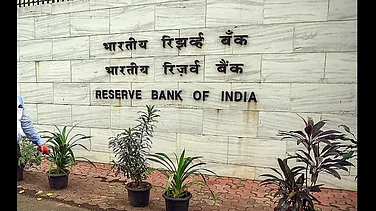Remember the days when long queues for withdrawal and depositing money at banks were the norm?
How opening a bank account was a lengthy procedure and getting loan approval was complex in nature.
However, over time, emerging technologies have brought about a complete transformation in banking methods and experiences.
Advanced technologies like Artificial Intelligence (AI) and Machine Learning (ML) have made its presence felt in all walks of life with the ability to help the user innovate. With the banking sector becoming an active adapter of AI and ML technologies, it is exploring and implementing these technologies in new ways to enhance customer experience and increase the efficiency of operations.
According to a report published by PwC in 2017, the global spending in artificial intelligence has touched $5.1 billion. Having a robust technological ecosystem as its backbone and a huge market base with low penetration of financial services (FS), the Indian FinTech market holds immense potential.
Here are 7 ways in which AI and ML are shaping the banking industry:
Fraud Detection And Prevention
According to RBI’s Annual Report, bank frauds accounted a loss of Rs 71,543 crore in 2018-19. Digital frauds constitute a significant threat that plague financial institutions. Machine learning solutions can track and analyse spending patterns, location, client behaviour, to detect anomalies and alert the customer at the earliest to reduce frauds. There are ML models that help in creating behaviour profiles of each user basis the way the users interact.
Further, new transactions can be compared with the base profile, which will help banks authenticate and prevent frauds in case of any differences.
Anti-Money Laundering (AML)
Financial institutions and the government are continually exploring new ways to fight money launderers and several anti-money laundering policies have been built to curb laundering. The timely detection of laundering activities is the most challenging aspect of the implementation of an efficient AML program.
A financial institution must monitor their customers' deposits and other transactions to ensure they aren't part of a money-laundering scheme. AML solutions enabled with AI and Ml technologies can help replace the manual process with real-time automated insights. Real-time screening and automated processing of vast amounts of personal data for better KYC reviews help in the context of customers’ profile and transaction history thus giving a better picture of their regulatory compliance while helping ascertain overall risk. Also, identification of intricate patterns via ML algorithms help in reducing the number of false positives without compromising regulatory obligations.
Personalised Banking
Customer experience is an integral part of each industry. With the world going completely digital, today’s generation expect a digital experience. AI provides a personalised experience for the clients on IVR, mobile banking, internet banking and email communication. These services can range from sending alerts about unusual activities, information on third-party services, tailored relevant offers, information on their spending activities and encouraging direct debits of bill payments.
Digital Marketing
Banks and financial institutions are laden with big-data, which is mostly unstructured. AI-based solutions help banks wade through this data to analyse and build operational efficiencies. AI and ML solutions help in suggesting offers to customers on new products on their preferred channel, mobile app, SMS or email and can be triggered based on their locations too. It also enables in engaging with customers across devices or screens for accumulating and analysing their data and predicts their requirements to suggest better products that they might need in the near future.
Digital Payments
According to a Credit Suisse report, the mobile payments market in India is projected to reach $1 trillion by 2022. Regardless of the rise in the number of platforms that enable businesses to offer online payment experience to their customers, there is still a long way ahead for it to be penetrated and accepted in the tier-II and tier-III cities. AI and ML-based solutions have transformed the payments landscape by enabling safe, swift and secure onboarding and payment systems across devices and services.
Robo Advisors
Robo-advisors are digital platforms that provide automated, algorithm-driven investment services with little to no human supervision. While initially, they depend on the information that the user provides but with time-based on machine learning, the solution learns and evolves to provide more trustworthy and intelligent services. AI-enabled Robo-advisors can provide more contextual services by considering multi-dimensional perspectives of risk appetite, returns expectations, investment goals and product analysis.
Credit Decisions
AI also enables credit companies to extend credit based on the clients’ profile from market data (rating agencies) and internal credit policy. It can help in generating pre-approved offers for specific customers. AI and Robotics Process Automation (RPA) can also proactively confirm KYC inputs, thus reducing the time to onboard a customer.
AI and ML’s disruption in finance is increasing exponentially, and it will have a more significant economic impact than ever. Right from enhancing customer experience to extending investment opportunities, to preventing fraud and mitigating investment risks, these technologies do not just have the potential to revolutionise the industry but also to improve the financial health of millions of people in the country.
The author is the Managing Director and CEO, Infrasoft Technologies


























